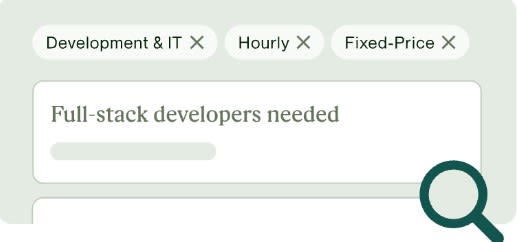8 Common Scams Targeting Freelancers (And How To Avoid Them)
In this guide, we’ll uncover why freelancers get scammed and the common scams targeting freelancers in 2022

Disclaimer: This is a guest blog post submitted by one of freelance writer, and as such offers advice based on personal experience. GoLance Support Team strongly recommends that all users communicate, work, and conduct payments ONLY on the platform as the best preventive measure against the most common scams, which may or may not be mentioned in this article.
For freelancers, the career landscape can be one of uncertainty. Regardless of the industry, you could go from one month being successful to another bringing in very little income. However, once you’ve established clients and contacts within your chosen industry, it gets a little easier.
Despite this, freelancers aren’t immune to the various threats and dangers that are out there online. Scammers are in fact everywhere and ready to take advantage of anyone that falls victim to their traps.
There are a number of common scams that freelancers should look out for, especially if you’re a freelancer yourself! In this guide, we’ll uncover why freelancers get scammed and the common scams targeting freelancers in 2022. You’ll also get some helpful tips that should avoid you getting scammed in the future.

Why do freelancers get scammed?
Regardless of how proficient you are when it comes to being safe and secure online, scammers can still trip you up. Freelancers can tend to be easy prey when it comes to fraudsters and criminals online.
Many freelancers who are just starting out are likely to keep their fees low in order to gain work. Then as their experiences improve when working with client, their guard lowers when it comes to working with anyone who approaches them on the internet.
With 44% of freelancers having reporting not being paid by a client, according to And Co, there are certainly many that fall victim to fraudulant activities.
8 common scams targeting freelancers in 2022
There are some common scams to look out as a freelance in 2022. Whether you’re new to freelancing entirely or you’re in a certain industry, here are eight common scams to watch out for.
1. Fake job postings
The most common form of identity theft when it comes to scammers targeting freelancers, are fake job postings. There are plenty of great job boards out there online that make searching for freelance roles much easier than they were before. You’ll have no trouble finding some great jobs through these platforms. However, these same platforms can’t always guarantee all their job postings are legitimate.

You may come across a job that you think is genuine but in fact has no intention on providing work. Instead, it might be looking to access private information that can be used to exploit you in some way.
How to avoid fake job postings
To avoid being scammed with fake job postings, use the most reputable job boards sites and look for verified accounts when searching through the listings. Check any client or previous feedback and where there’s no information available, tread extra carefully.
2. Suspicious payment methods
Another scam to be aware of is those who offer to pay via suspicious or unusual methods. According to SEON on loan fraud, many fraudsters will make payments with stolen credit cards. That means as a freelancer, even if you’ve done the work asked of the individual, you could have the money recalled.
If clients of yours start requesting to make payments through unusual or suspicious methods like goods and services, this should be a red flag.
How to avoid suspicious payment methods
It’s important to be upfront with the clients from the beginning and request the payments to be conducted ONLY on and through payment channels of the platform you’re working.
3. Having to pay to access work
As a freelancer, it can often be tough to be left without work for even short periods of time. That uncertainty surrounding your paycheck can be one that makes you dive into something without thinking about it first.
Paying to access work isn’t normal or as standard by any means. If you’re paying to access the project or the software required for the project, then it’s more than likely to be a scam.
How to avoid pay to access work scams
This is a fairly simple one - don’t pay to access freelance work! With some job boards, they may charge a fee, which is separate to this and is typical with some platforms. However, you should never have to pay to work on a freelancer project of any kind. That’s the case with goLance where freelancers can submit as many proposals as they want without any fees and membership fees. Also, clients on goLance don’t pay for payment processing fees.
4. Pyramid schemes
Otherwise known as a MLM, pyramid schemes will always present themselves as being an opportunity that’s too good to miss. Howver, the reality couldn’t be further from the truth. First you sign up to become a brand ambassador, then you buy the company’s products with the hopes that the stock you buy will simply fly off the shelves.

However the problem with this is that there’s no guarantee you’ll sell what you buy and you may find it hard to convince your customers to buy more than one product, seeing as most will likely be friends and family.
These large MLM brands, despite being flawed in their methods, are perfectly legal for many to create and to join up to.
How to avoid pyramid schemes
To avoid MLM schemes, look out for those ‘get rich quick’ methods and avoid them at all costs. When something sounds too good to be true, it’s likely to be so. Reject any work that’s being offered by these companies. There’s a list of well-known MLM sites on TitleMax that you could note down to avoid.
5. Work-from-home job opportunities
Work-from-home job opportunities can definitely sound appealing when many freelancers will work remotely too. It’s also a viable option for those who have just gone freelancing for the first time recently.
These scams work by promising high-earning potentials but don’t necessarily detail what the work is and what it entails. This type of scam will prey on the most vulnerable and the somewhat niave, which many are capable of being, especially when starting something new.
How to avoid work-from-home job opportunities
The best way to avoid these scams is to use the legitimate freelance platforms. That way, if they’re advertising a work-from-home job, there’s likely more of a chance that the job listing is actually legitimate.
These freelance platforms often have official reporting and monitoring methods in place to spot fake or deceitful job postings.
6. Unnecessary test projects
Test projects are sometimes needed for the client to assess how capable the freelancer is for the project being advertised. It’s the same as a candidate going in for an interview and taking pre-employment tests to see if they’re right for the job.

However, there are some test projects that are unnecessary and will often pretend to be needed but are a cover-up to get the freelancer to work for free. If a client is interested in you and they ask you for a test project, consider whether it’s needed for the work being advertised. For some, it might be needed but for others, it could be a waste of time.
How to avoid unnecessary test project scams
The best way to avoid doing any work for free under the rouse of submitting a test piece, is to have a selection of work that you’ve done prior to present to the client. They should be able to tell from your work prior that you’re capable of doing the task in hand.
Don’t feel shy to push back on the client to see whether or not you can agree on a different approach when testing your skills for the project being advertised.
7. Lack of pre-work agreements
Whether you’re working on a short-term project taking place over a few days or it’s a longer project that’s spanning over the course of a year, having a pre-work agreement in place is essential. A pre-work agreement sets in place the conditions of the project, what’s expected and the fee given to the freelancer.
Discussing all details of the project can offer peace of mind and protection for yourself as a freelancer. It helps you avoid to be scammed and need evidence to help get justice. This means that you should keep all communication with your clients before and after you start working on a project on the freelance platform.
How to avoid lack of pre-work agreements
If a client refuses or protests to discuss the details of your project, be wary. They’re likely to have ill intentions when it comes to seeing through the project and later on their payments.
8. Easy jobs for high pay
We all want to get paid more money, so when these seemingly easy jobs come along with high payouts, it can be hard to turn them down. However, you may be disappointed to learn that a lot of these ‘high paying jobs’ will end up being scams or at least no what they were thought to be when applying for them.
How to avoid easy jobs for high pay
Assess the amount being offered and the project’s requirements. Ask yourself why the client would offer so much for the work and if it seems too much is being offered, then you may want to be wary or avoid following through with the project.
Be vigilant as a freelancer in 2022
The freelancing industry is one that’s fierce and not everyone is made to be their own boss. However, if you’re able to establish yourself as a freelancer, the benefits can certainly outweigh some of the sleepless nights!
When it comes to freelance scams, be vigilant and tread carefully. If you’re uncertain about a certain project or client, then it’s better to avoid it.

Author Bio: Natalie Redman (LinkedIn)
Freelance writer for many clients across multiple industries. Natalie has two years of copywriting experience. Natalie has a wide range of experience copywriting for web pages for businesses across many industries. She’s also an owner of two blog websites and a Youtube content creator.

